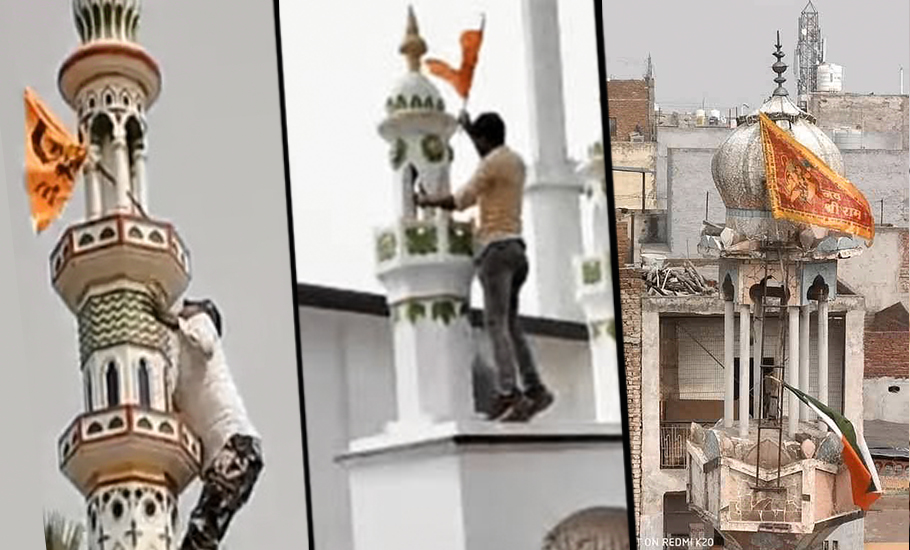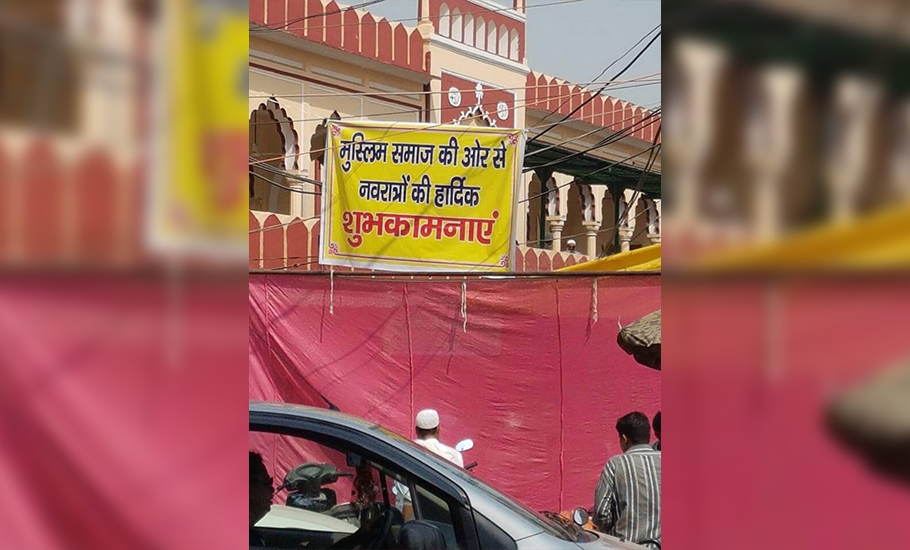
- Home
- India
- World
- Premium
- THE FEDERAL SPECIAL
- Analysis
- States
- Perspective
- Videos
- Sports
- Education
- Entertainment
- Elections
- Features
- Health
- Business
- Series
- In memoriam: Sheikh Mujibur Rahman
- Bishnoi's Men
- NEET TANGLE
- Economy Series
- Earth Day
- Kashmir’s Frozen Turbulence
- India@75
- The legend of Ramjanmabhoomi
- Liberalisation@30
- How to tame a dragon
- Celebrating biodiversity
- Farm Matters
- 50 days of solitude
- Bringing Migrants Home
- Budget 2020
- Jharkhand Votes
- The Federal Investigates
- The Federal Impact
- Vanishing Sand
- Gandhi @ 150
- Andhra Today
- Field report
- Operation Gulmarg
- Pandemic @1 Mn in India
- The Federal Year-End
- The Zero Year
- Science
- Brand studio
- Newsletter
- Elections 2024
- Events
- Home
- IndiaIndia
- World
- Analysis
- StatesStates
- PerspectivePerspective
- VideosVideos
- Sports
- Education
- Entertainment
- ElectionsElections
- Features
- Health
- BusinessBusiness
- Premium
- Loading...
Premium - Events

Anti-Muslim violence: ‘Genocide is already happening’, ‘good Hindus comfortably mum’

Diwan Khan, 56, ticks all the boxes for an adarsh nagrik (ideal citizen) – hardworking, honest and law-abiding. Yet he is at the receiving end of majoritarian bloodlust that’s baying to declare Khan’s country a ‘Hindu Rashtra’. The humble meat seller from Delhi is tired of walking on eggshells. “You just don’t know what would offend them – sometimes my beard, sometimes...
Diwan Khan, 56, ticks all the boxes for an adarsh nagrik (ideal citizen) – hardworking, honest and law-abiding. Yet he is at the receiving end of majoritarian bloodlust that’s baying to declare Khan’s country a ‘Hindu Rashtra’. The humble meat seller from Delhi is tired of walking on eggshells. “You just don’t know what would offend them – sometimes my beard, sometimes azaan, sometimes the hijab, sometimes meat. If there is nothing else, then my name itself.”
There is a new sanction, new provocation every day, he says. “Even their festivals have become an excuse to launch attacks on Muslims. I have been selling meat for decades. Today, they have banned selling meat during Navratras [in Delhi], tomorrow they might want an all-season ban. In some states it’s halal meat that they find unpalatable to their politics. In some others, something else done by Muslims is offensive to their eyes. Every day there is a new objection to our existence as a whole.”
Khan is no longer angry, he is simply tired. “There is no one to help us – no government, no police and no citizens of this country. I have nowhere to go. If I’m further stopped from earning my bread by fair means, I’ll have no other option but to take my life.”
Unlike Khan, Latif Raja, a vegetable seller, is ready to go to any extent if that helps assuage hurt sentiments of the Hindus. “If somebody wants me to say Jai Shri Ram in exchange for keeping my business, I would go ahead and do it. I’m scared. I don’t want to lose my livelihood. This cart is all I have,” says Latif Raja.
Gurgaon, where Latif has been living for several years, saw various anti-Mulsim attacks in the past two years. The biggest and most sustained among them was the obstruction of Friday namaz in open spaces. Last March, the Gurgaon Municipal Corporation (MCG) decided to keep all meat shops in the city closed on Tuesdays, citing ‘disrespect to Hindu beliefs’. Incidentally, most of the meat shops were owned by Muslims in Gurgaon.
Tension continues to simmer between Hindu militia outfits and Muslim shopkeepers in Gurgaon. A group named Bharat Mata Vahini (BMV) has given an ultimatum to Muslim meat sellers to stop doing business in Gurgaon as eating meat is “not allowed in Hindu culture”.
“In Hindu culture, meat is considered a sin. We are demanding a complete ban on meat sale in Gurgaon. The shops are mostly owned by Muslims. They also don’t respect Hindu beliefs. The shops are in the closed markets making it difficult for passersby to even stand in those streets,” says BMV president Dinesh Bharti.

Bharti is adamant that such bans are in no way an attack on Muslim livelihoods. “There are many vegetable sellers, plumbers, barbers, and other labour class in Gurgaon who are Muslims. We are not telling them to stop their business. However, if tomorrow they also start acting smart and causing trouble, we will not let them do their business in Gurgaon.”
Abdul Raza is well aware of his rights but there is hardly any law-enforcing agency to safeguard that. “This is my only source of income. Hindus also eat meat. In fact, I sell more meat to Hindus. Everybody has a right to their religious beliefs, but how is it okay to snatch someone else’s right to earn,” says Raza, a resident of Gurgaon.
Brow-beaten into submission by the daily attacks on Muslim livelihoods, he adds, “If they want us to say Jai Shri Ram, we can do that. But we request them not to hit our businesses.”
Raza doesn’t want to go through the trauma and humiliation that fruit vendor Nabisab Killedar had to face recently. Calling for a boycott of Muslim-run businesses, members of right-wing group Ram Sene vandalised his fruit stall. Killedar, an elderly street vendor from Dharwad in Karnataka, says he hasn’t gone back to work since. “I have lost everything,” he says, his grief as much about the sudden assault on his livelihood as it was about it happening at a place he revered.
Killedar says he has been selling fruits outside the Hanuman temple at Nuggikeri near Dharwad town every Saturday for the past 15-20 years.
The image that went viral two weeks ago was of Killedar’s stock of watermelons lying squashed outside the Nuggikeri temple. A police case was subsequently registered and four persons arrested and later released on bail. The earnings from the fruit business sustain Nabisab and his family who live in a tiny one-room house in another village several kilometres away. Typically, his son and he would ply their trade elsewhere on the footpaths during weekdays—on Saturdays, he would be at the Nuggikeri Hanuman temple which, he says, has been a providential location for him. “It’s the greatness of the place… How else would you be able to sell six-seven quintals of fruits,” he asks.

People like Nabisab Killedar are at the centre of the Hindutva frenzy that has suddenly intensified, by notches above normal, across the country. Many among the Hindus allege that Muslims are eating into the businesses of Hindu vendors. Gurgaon-based engineer Yogesh Bhardwaj is one of them. Bhardwaj also warns his Hindu brethren to be wary of “Muslims gaining employment in the guise of Hindus”. “Once I called a carpenter. He told me his name is Mahesh. But I noticed a ‘Muslim locket’ around his neck. I asked him for his Aadhaar card, but he refused saying he doesn’t have it on him. I asked for other IDs, which revealed he was a Muslim. These people are cheats. That is why we don’t want to give them any work.”
In their defence, Mohammad Karif, a plumber and his likes, say, “I am not allowed into many Hindu houses just because I am a Muslim.” He admits that sometimes he has to hide his Muslim identity to get work. “I know it is wrong, but what to do. We too have families to feed. All we want to do is earn a living.”
That is exactly what Rakesh Solanki, a member of the Hindu Yuva Vahini, has a problem with. “These people [Muslims] are everywhere while our Hindu brothers are unemployed.
The unemployment is not because of Modiji’s failure. It is because such people eat into all employment opportunities. Have you seen startups like Urban Company, GoMechanic, Spinny and others? Every other person working there is a Muslim.”
“They [Muslims] give birth to 10 children and take away all jobs. They are eating into the business of Hindu vegetable sellers, cab drivers and every other possible profession. Muslims with a number of children should be banned from doing jobs,” he suggests.
Delhi-based cab driver Yusuf Khan has already been dealing with such ‘sanctions’ because of his religious identity. “People sometimes cancel their trips when they see my name. A few have openly said that. Hindu drivers usually enjoy more trust among passengers, especially at night. That is why you will find very few Muslim cabbies at night.”
The video shows Ram Sene activists being welcomed by members of their outfit after being released on bail for destroying Naisab Killedar’s watermelon cart. (Courtesy of @KeypadGuerilla)
“Many of us used to do other jobs during the day and drive cabs for extra income at night, which has stopped now. We feel like second-class citizens in this country. This is very tiring, both physically and mentally. People say ‘Muslims steal’. But if you don’t give them any job, how will they survive? he asks.
State bulldozing human rights
What is hurting Yusuf Khan and others like him is the blatant support to such rights violations by government bodies whose primary job is to serve and protect the rights of all citizens, irrespective of their religion.
The average Muslim it seems has lost hope for any justice and fair play. “Have you not seen what happened in Khargone (Madhya Pradesh), Karauli (Rajasthan) or Gujarat? Have you not seen Jahangirpuri (Delhi)? They [Hindus] provoke, provoke and provoke. They start the attacks but the blame is heaped only on Muslims. It doesn’t matter if someone has retaliated or not. If you are a Muslim, you will have to take the punishment,” adds Yusuf Khan, who is still trying to wrap his head around the “absurdity” of punishing a man with no arms for pelting stones.
Following the riots that broke out in Madhya Pradesh’s Khargone district during the Ram Navami procession, the houses and shops of those named in the riots were marked and razed to dust, all of whom were Muslims. Among them was a small shop run by 35-year-old Wasim Sheikh after he was named on the list of “stone pelters”. Sheikh apparently lost both his arms to electrocution in 2005.
“There are a number of such instances. Despite videos circulating all over social media showing Hindu men brandishing swords, mouthing provocative slogans and playing loud music with raunchy lyrics in front of masjids, it’s the Muslim who is accused of and punished for fomenting trouble,” Khan adds, his anger and exasperation slowly rising.
“Why no action against men in saffron robes addressing dharam sansad across cities, calling for genocide of Muslims and rape of Muslim women. Why no action against BJP leaders and elected representatives asking Hindus to take up swords and guns to achieve Hindu Rashtra? What are they waiting for?”
Azad Khan, 29, a car mechanic from Delhi, says, “Clearly this all is state-sponsored. We are the victims and yet we are the ones to go to jail. How do you think this is possible? We can see and understand everything. In the Delhi riots of 2020, my shop was burnt. I took up a job nearby. Now, even in this job, I am facing problems because people don’t want a Muslim to repair their car. Does this make any sense to you?”
Khan has reasons to get so anxious, especially when friends too have started to look the other way. “No one trusts us. Earlier, I had so many Hindu friends, but now Hindus don’t want to be friends with us.”
“Frankly speaking, I fear where I’ll go if I am removed from my job or land. I was born here, I want to die here.”
Raheem, a rickshaw puller, doesn’t watch news but going by what others in his circle talk about, he is worried about his life and existence in his own country, threatened by his own countrymen.
“We are very poor people and already have a lot of problems. Have you heard the phrase ‘Marta kya na karta’ (anything to avert death)? If this continues, I’ll have no option but to change my religion… whatever is acceptable to stay alive in this country. In order to live, we need to earn. Allah nahin to rab ka naam lelenge. Sahab, sab ek hain (If they can’t tolerate Allah’s name, I’ll take some other god’s name. Ultimately, all religions lead to God).”
Giving peace a chance
Amid the fear and loathing, many from the community have made attempts to reach out to Hindus and set examples of communal harmony.
Maulvi Abdul Rahim from Gurgaon says the Muslim community has always been at the forefront of serving people. “Many have easily forgotten how people from the community helped those outside their own religion. When families abandoned their own dead members during the first and second waves of coronavirus, Muslim youths took it upon themselves to cremate those bodies and accompanied them in their last journey.”

There are many such instances, he adds. “Even during normal times we distribute water and food to pilgrims, shower flower petals at shobha yatras. We want them to understand that we love our Hindu brothers. We do it without thinking of any profit or loss.”
Muslims, the maulvi says, are only a handful compared to the Hindu population. “If the majority turns against us, we can’t save ourselves. We can only adopt the Gandhian way and spread love. Today, it may not be helping the situation much, but things will change someday soon, hopefully.”
In a similar attempt at reconciliation, four years after his 16-year-old son was killed in a communal riot in Asansol (West Bengal), Imam of Noorani Mosque, Imdadulla Rashidi, last month refused to testify against two accused Pintu Yadav and Vinay Tiwari.
Both the accused were acquitted in the case by a district court following Rashidi’s refusal to identify the two as his son’s killers.
“I haven’t seen with my own eyes the two killing my son. So, I felt I can’t testify to what I did not see myself.”
Immediately after his son was killed in the 2018 riot, Rashidi addressed a crowd of Muslim youth that had gathered for his son’s funeral. He warned them that he would leave the mosque and the town if there was any retaliation to his son Sibghatullah’s killing.
The town has not seen any major communal flare-up since the 2018 riot.
Instances like this make 43-year-old Altaf Khan, a Delhi-based chartered accountant, hopeful. Altaf Khan feels he is fortunate to have so many “good Hindu friends”. “I have a lot of Hindu friends. We sit, talk and have fun together. There is a huge difference between my friends and whatever is happening across the country. Some of my Hindu friends do support the BJP, but this has never impacted our friendship. I’m hopeful that if tomorrow someone tries to hurt me, my friends will stand up for me,” he says.
Listening to Altaf’s account, 36-year-old Muskeen, an engineer, wished this was true about his friends too. “I had many Hindu friends while in college. We stayed and ate together. But now a lot of them have become hardcore BJP supporters and convey their aversion for Muslims with passive aggression. Islamophobic WhatsApp forwards blaming the Muslim population for everything that is wrong in this country is the new normal.”
Muskeen says one of his friends last year told him to be careful if he wants to stay in this country. “I asked why? His answer was: ‘People from your religion have a problem with so many things even after this country allowed them to live here’. I couldn’t believe my ears. He then started sending WhatsApp forwards claiming how Muslims are not Indians, how Muslims killed Hindus in the past whenever we got the chance etc, etc. Earlier, he used to argue logically but now he has been brainwashed completely. And he is not alone. Many Hindus now think of us as their enemy. I am thinking of taking up a job in Saudi to save myself from all this.”
Similar thoughts have been crossing the mind of Hussain Ansari’s parents as well. The 25-year-old engineer from Indore says, “After completing my engineering in 2019, I wanted to go to New Zealand for higher education. But my parents refused to send me since I am their only son.”
“I then started preparing for an engineering job in the Army. Looking at the increasing attacks against Muslims, my parents now want me to move out of the county.”
Hussian’s middle-class parents are scared for their son’s future in a country where the ruling party leaders keep talking about establishing a Hindu Rashtra soon, a country where the Constitution is violated every other day. “Earlier, they used to think of communal tension as a one-off incident. But the ongoing frenzy whipped up against Muslims has made them feel this country is no more suitable for Muslims.”
But going abroad is hardly an option for most others. “I can’t afford to go nor do I want to leave my country,” says Delhi-based Shohaib Ahmed.
Born and bred in Kolkata, Ahmed is tired of the cycle of anti-Muslim attacks. “After every small and big attack on the lives and livelihood of Muslims, a few good Samaritans get together to pick up the broken pieces of Muslim lives. Then it happens again. It’s a continuous cycle. They keep tearing apart our lives, we keep mending.”
He adds as an afterthought. “The genocide is already happening. When will the good Hindus speak up?”
(With inputs from Samir K Purkayastha, Ajay Sukumaran)
